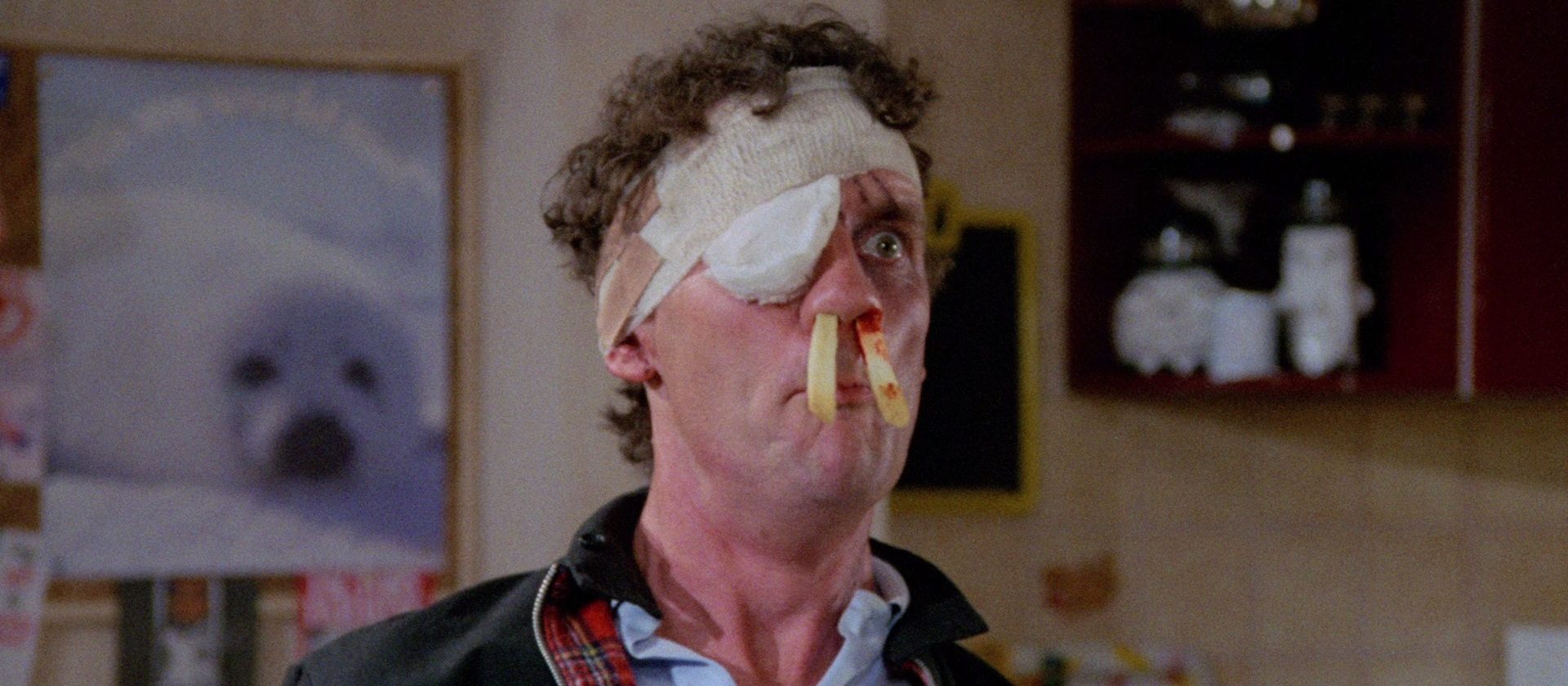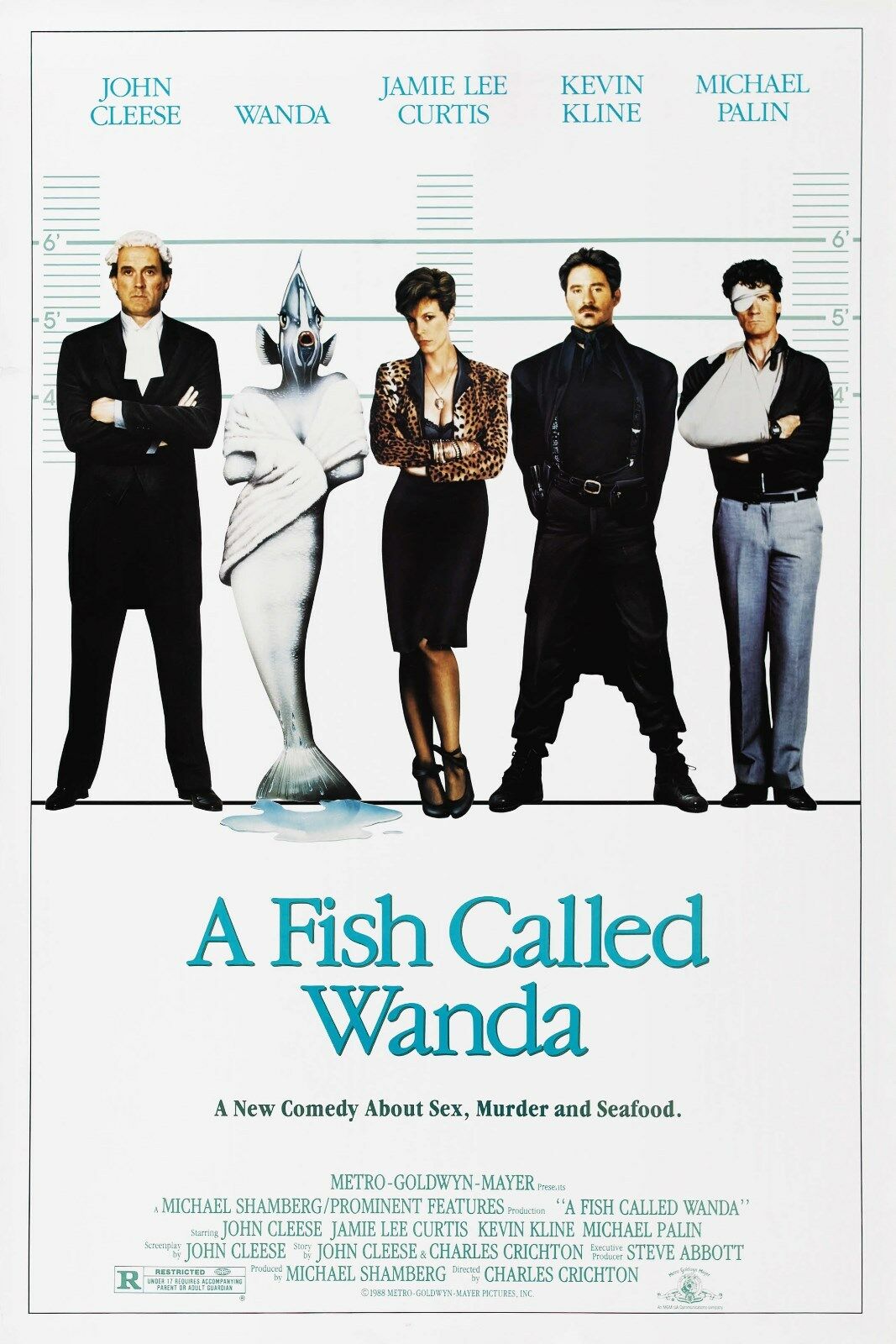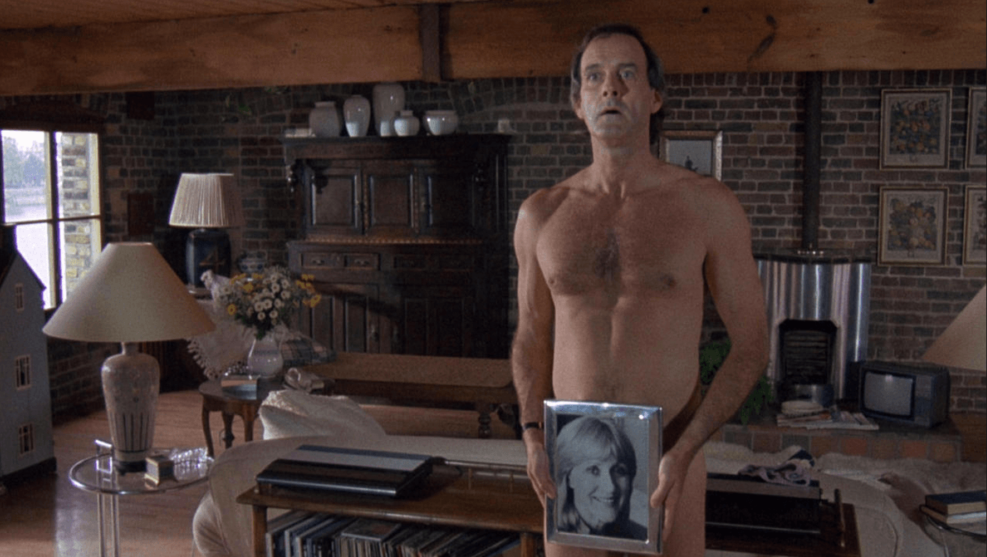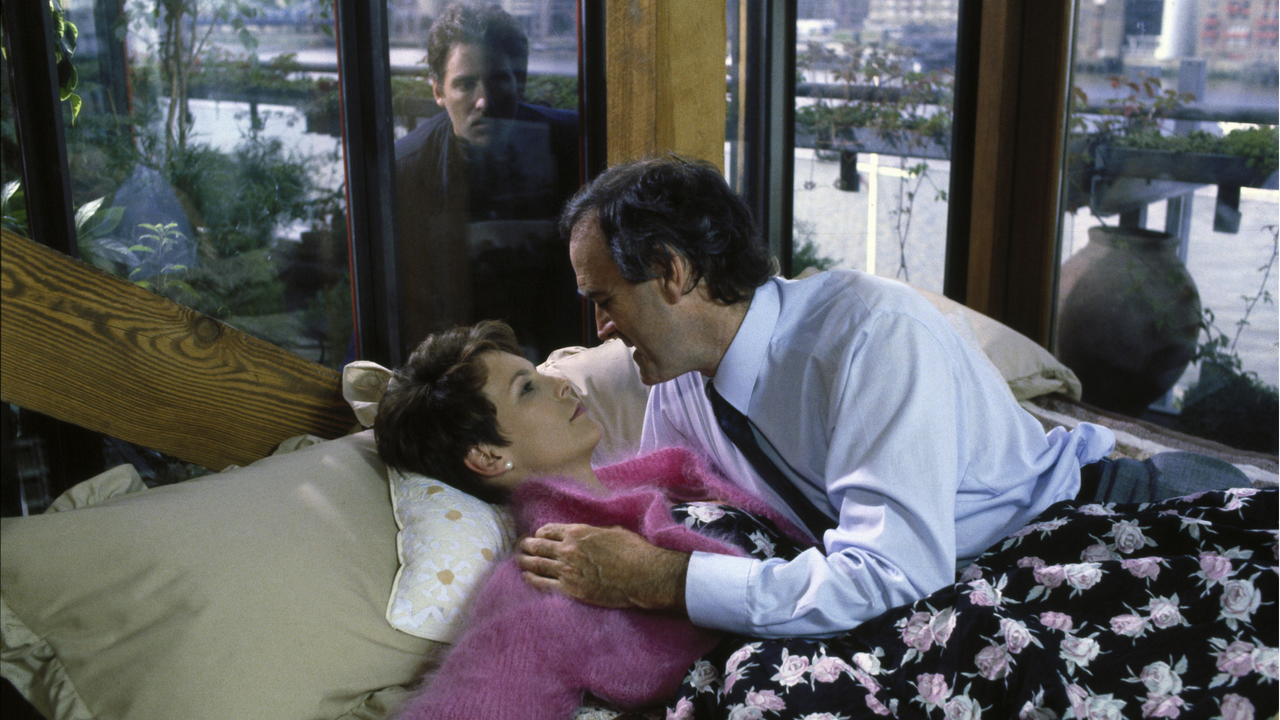

“I looked at the clock… because I was saying to myself… it’s five to seven, where could he be going with that sawed-off shotgun?”
Watching A Fish Called Wanda for the second time reminded me that comedies are best enjoyed with others. During my initial viewing, I chuckled to myself quite frequently, but also spent long stretches munching popcorn in the silence of my dorm room. This time, now sharing the popcorn bowl with my wife (and eating extra-buttery homemade instead of Orville Redenbacher’s), we found the film to be positively gut-busting. The kind of funny that makes you cackle without manners and lock eyes with the person next to you—not to verify that their funny bone has also been tickled (you know it has), but to share in the joy of the moment. Surely there’s a research paper out there somewhere that explains why things are so much funnier when they’re shared with other people.
Of course, the communal element that was missing on my first viewing is only one ingredient in the intricate concoction of an uproarious comedy. The crux for the film analyst is that the other parts are so multi-layered and subjective that it’s borderline criminal to parse them out and try to discuss them. Better to leave that magic untouched and undiminished, ripe for revisiting again and again.
The thing is, although comedies are certainly allowed to aim for the same objectives as conventional narrative films—character development, narrative, production design, what have you—their primary goal is entirely different. They’re not trying to inspire or evoke an emotional response, but to make the audience laugh (duh). If they miss that mark, no one will care that the lead character had a compelling backstory or that the DP framed the action with consummate artistry. Anyway. In service of that central aim, everything gets tuned to a different frequency. Performance styles are exaggerated, dialogue is shaped with an eye toward amusing wordplay and/or vulgarity, characters are given peculiar attributes, narratives are crafted to produce humorous situations. It’s a delicate balance to achieve even if all the elements are present—which is a rare occurrence in and of itself—but when it all comes together it’s a thing of beauty. And that brings us back around to A Fish Called Wanda, a film that is resoundingly successful at evoking hysterical laughter.

The plot, important only insofar as it is used to set up moments of great hilarity, is kicked off with a jewel heist. British gangster George (Tom Georgeson) and henchman Ken (Michael Palin) begrudgingly obtain the services of an American sibling duo to help them pull it off. Wanda (Jamie Lee Curtis) is a con artist who is mid-swindle when the film begins, having already seduced George. Her “brother” Otto (Kevin Kline) is a wannabe sophisticate/Buddhist/weapons expert, but really a dumb buffoon and actually not her brother at all, but her lover. Of course they plan to double cross their British partners. However, they didn’t count on George anticipating their betrayal and hiding the loot. We quickly find ourselves in a situation where the only person who knows the location of the diamonds is behind bars awaiting trial. The catch is that no one knows who knows what or if any of the others is trustworthy. The obvious course of action, then, is for Wanda to seduce George’s barrister on the belief that he would reveal the hiding spot to his legal team. The film proceeds to twist itself into a mesmerizing web of confusion, happenstance, and deception. Otto becomes jealous of Wanda’s romance with Archie (John Cleese). Archie tries to hide his affair with Wanda from his wife Wendy (Maria Aitken) and daughter Portia (Cynthia Cleese). Ken is tasked with killing an elderly eye witness (a gag that feels like it was pulled straight out of Flying Circus). And then they all end up in court together at the same time.

Perhaps the most pleasurable aspect of the film is the way it generates a perpetual sense of surprise. To wit, there’s a wonderful sequence where Wanda visits Archie while his family is at the opera. She arrives unannounced and, after some canoodling, sends him to the kitchen to get her a drink. But while he’s off fetching champagne, Otto arrives to ensure that Wanda isn’t getting too touchy-feely with the lawyer. When he tries to leave, though, Archie’s wife and daughter arrive home early, forcing both Americans to quickly hide. Archie returns with a bottle and two glasses to find his wife where he had left Wanda. He briefly recovers his composure but doesn’t know how to respond when she asks whose car is in the driveway. He stammers for a moment before Otto steps out from behind the door and poses as C.I.A. agent “Harvey Manfredjenson.” Of course, Archie had no idea that Otto was in his house, and so he stands there slack-jawed while Otto explains the X.K. Red-27 technique to Wendy. These wild sequences work so well because they are exquisitely polished on the page but exude a sense of spontaneity on the screen. This results in layered jokes delivered with an air of improvisation—an untouchable combination that will have you picking up subtle touches the more times you watch it. Such an exercise could fall flat in the wrong hands, but the main cast members are perfectly in-sync with their timing and tones, and the supporting players all step up at just the right moments. Kline, of course, won Best Supporting Actor for his role as Otto, which I consider something of a minor miracle. A performance this zany and devoted to silliness wouldn’t even be considered today.
I’m not sure how much credit is due to director Charles Crichton, who hadn’t made a film in over twenty years and would never make one again. He and John Cleese had tried to collaborate as early as the 1960s but it wasn’t until A Fish Called Wanda that it finally happened. It seems clear, then, that Cleese is the comedic mastermind behind this magical mixture of farcical characters, slapstick, and British-v-American sensibilities; which seems correct given his credentials.